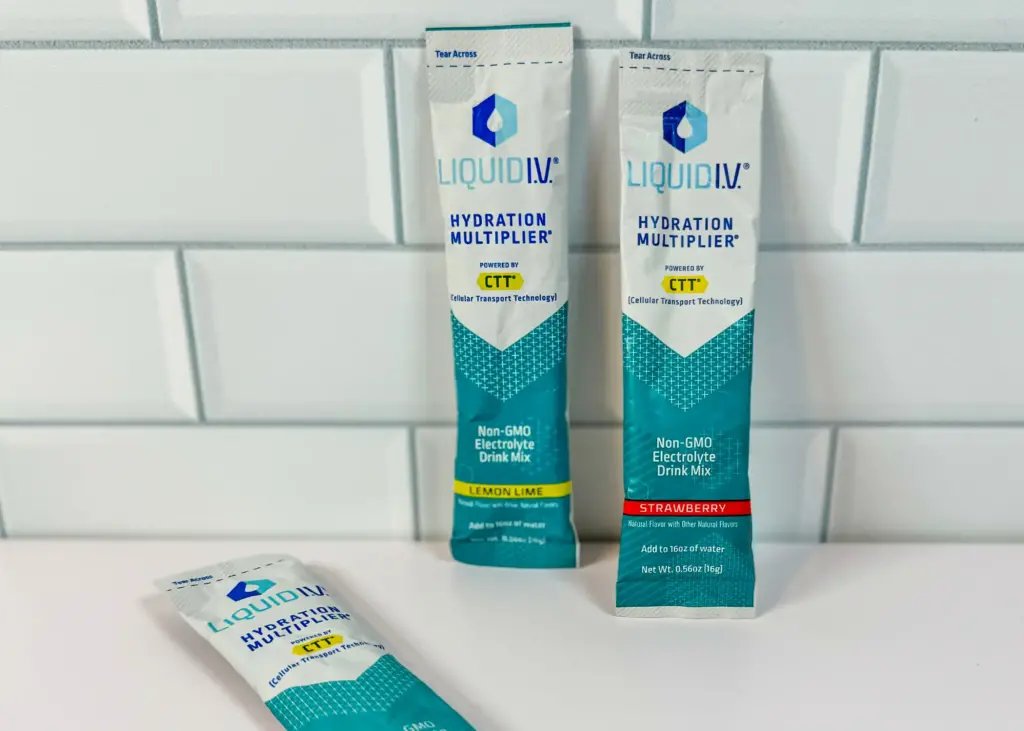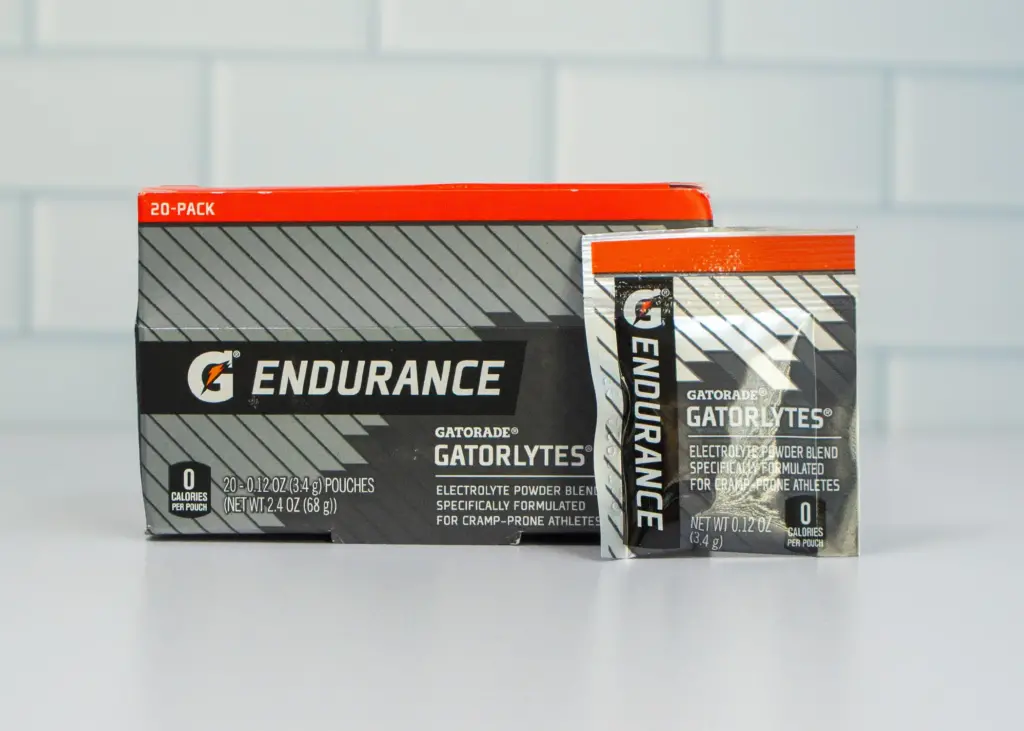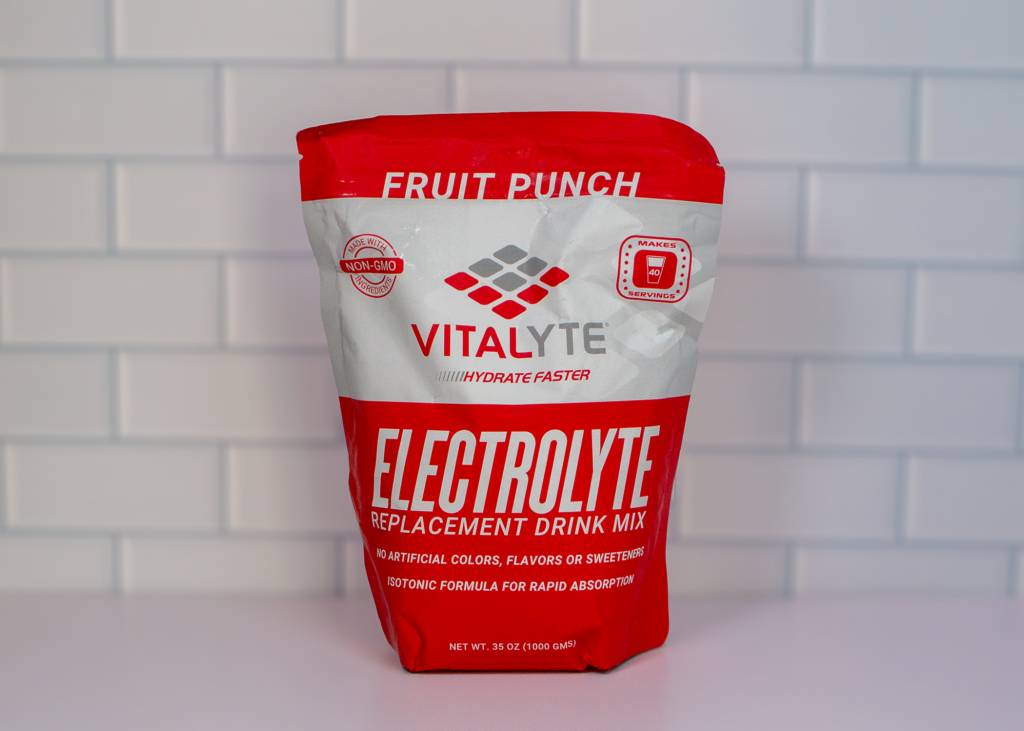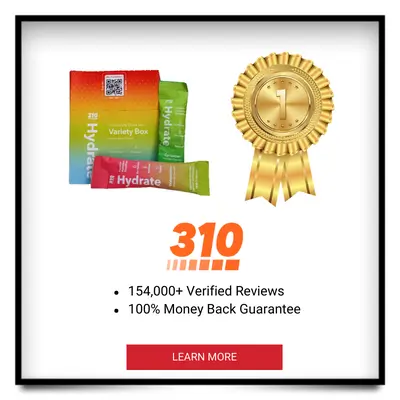75% of Americans are Chronically Dehydrated

Regardless of your activity – whether it’s running, walking, or hiking – and regardless of your location, be it a trail, a beach, or a track, staying hydrated is absolutely essential. Every step you take requires trillions of cells in your body to work together to provide the energy you need to keep going. These cells rely on you to maintain their proper function by staying hydrated. If you neglect hydration, these cells won’t have enough fuel, leading to decreased efficiency and less successful activity.
In essence, proper hydration is crucial for the performance, health, and well-being of runners and hikers. The easiest way to stay hydrated is by drinking plenty of water, which serves various vital functions. Water helps regulate your body temperature, eliminates waste, provides energy to cells, and cushions joints. Adequate hydration can also lower the risk of cramps and injury, enhance recovery, and improve overall performance.
During running and hiking, the body generates more heat than when at rest, leading to sweating as a natural cooling mechanism. However, sweating depletes the body’s stores of hydration and electrolytes like potassium and sodium. Losing more than 2 to 3 percent of body weight through fluid loss (about 3 to 5 pounds for a 150-pound person) can result in dehydration. Depletion of hydration and electrolyte reserves can lead to decreased stamina, fatigue, cramps, headaches, and even increased heart rate.
Given the critical importance of hydration for runners and hikers, it’s essential to remember to drink water regularly. Here are some tips to help you stay adequately hydrated during your running and hiking activities.
Sweat and dehydration
During physical activity, the body sweats to regulate its temperature. As sweat evaporates from the skin, it dissipates heat, yet this process also results in fluid loss.
To counteract this fluid loss, it’s essential to consume fluids during exercise. This practice helps mitigate the risk of heat-related issues, sustains normal bodily functions, and preserves performance levels. Essentially, if you’re sweating, you need to replenish fluids.
When does dehydration happen?
Dehydration occurs when fluid loss exceeds intake, impairing bodily functions.
Every day, your body naturally loses water through various processes like sweating, breathing, urinating, defecating, and through tears and saliva. Typically, you replenish this lost fluid by consuming liquids and water-rich foods. However, inadequate intake or excessive loss can lead to dehydration.
Dehydration severity varies from mild to severe, determined by the extent of fluid loss relative to body weight. It may be classified as shown below:
Mild dehydration manifests as thirst, decreased urination and sweating, and dry mouth, with children typically experiencing it when losing 3%-5% of body weight. Treatment involves consuming water, electrolyte drinks, or oral rehydration solutions available over the counter.
Basic Indicators of Dehydration...
- Dizziness and lightheadedness
- Fatigue and weakness
- Dry mouth and throat
- Dark yellow urine
- Increased thirst
- Constipation
- Headache
- Dry skin
Moderate dehydration exhibits intensified symptoms, occurring when children lose 6%-10% of body weight, necessitating medical intervention for intravenous fluid administration.
Severe dehydration presents symptoms such as dizziness, sunken eyes, fainting, rapid breathing, and tachycardia, with children losing over 10% of their body weight. Immediate medical attention is imperative, often involving IV fluid therapy containing electrolytes.
- Symptoms of severe dehydration
- Fainting
- Sleepiness
- Sunken Eyes
- Very dry skin
- Feeling dizzy
- lack of energy
- Confusion or irritability
- Rapid heartbeat & breathing
- Not peeing or having very dark yellow pee
How much water should you drink while exercising?
Determining the precise amount of water to consume during exercise lacks strict guidelines since individual needs vary. It’s essential to take into account factors such as your perspiration rate, environmental temperature and humidity, clothing worn, as well as the duration and intensity of your physical activity.
If you have specific medical conditions like diabetes, heart disease, or cystic fibrosis, it may be necessary to maintain better hydration. Additionally, certain medications can function as diuretics, leading to increased fluid loss.
The American Council on Exercise offers essential water intake guidelines for pre, during, and post-exercise
- Drink 17 to 20 ounces of water
- Have 8 ounces of water
- Drink 7 to 10 ounces of water
- Drink 8 ounces fo water
- 2 to 3 hours before exercising
- 20 - 30 minutes before workout or during warm-up
- Every 10 to 20 minutes during exercise
- Within 30 minutes after your workout
Athletes might consider measuring their fluid loss during exercise to determine their optimal water intake (16 to 24 ounces of water per pound of body weight lost).
Water: Fundamental Hydration
Water stands as the most elemental form of hydration, and notably, the most economical. According to Rayven Nairn(MS, RDN, LDN), sparkling water holds the same hydrating capacity as still tap water.
“While water remains essential, athletes might find it monotonous,” she remarks. “In moderation, plain water isn’t always optimal — excessive consumption can dilute electrolytes. The key is equilibrium.
Supplementing water intake with dietary sources of hydration is crucial. I recommend incorporating hydrating fruits like pineapple or watermelon, along with sports drinks or electrolyte-infused water containing water-soluble vitamins such as C and Bs.”
Sports Drinks
Sports drinks encompass commercially produced beverages formulated to sustain hydration and replenish during training, workouts, or sports activities. Typically, they feature water, flavors, colors, electrolytes (primarily salt), and sugar for energy, though sugar-free options are available.
With a vast market offering, electrolyte-enhanced flavors are also available in packets or tablets for water augmentation. Endurance athletes may utilize gels containing salt and sugar for energy replenishment. “Alternatively, you can create your own sports drink by adding 1/2 teaspoon of salt to a liter of water, sweetening it, and enhancing its taste with lemon or fruit,” suggests Nairn.
Moreover, sports drinks and electrolyte beverages can alleviate dehydration symptoms caused by fever, diarrhea, or vomiting.
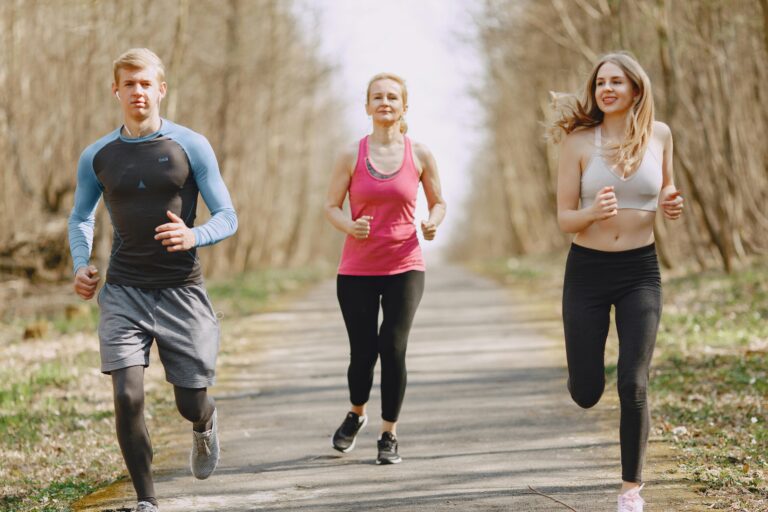
Types of Sports Drinks
Sports drinks are categorized based on their carbohydrate (sugar) and electrolyte content:
Isotonic drinks
mirror the carbohydrate and electrolyte balance of human blood, ideal for restoring electrolyte equilibrium post-exercise-induced sweating.Hypotonic drinks
feature lower carbohydrate and electrolyte levels than the body, suitable for post-workout consumption.Hypertonic formulas
contain higher carbohydrate and electrolyte concentrations than human blood, akin to electrolyte gels, aiding endurance athletes in replenishing muscle glycogen stores for energy.
Other Types of Sports Drinks
- Coconut water
- Coconut water is high in potassium, but this electrolyte is not one that people lose a lot of through perspiration. It’s the salt that needs to be replenished.
- Caffeine
- Caffeine is an ingredient in some sports and energy drinks, and some athletes like to drink coffee or other caffeinated beverages a few hours before a game or workout to boost their energy. “That’s not a problem,” Nairn says, but she cautions, caffeine can upset the stomach and stimulate the bowel, necessitating an unplanned trip to the bathroom.
- Chocolate Milk
- Chocolate-flavored whole milk provides fats that can help lessen the impact of post-exercise inflammation, and the protein can help in recovery.
Can you overdo it with electrolyte drinks?
Nairn says that in general, drinking large quantities of electrolytes does not put healthy people in danger. That’s because they are water soluble. “What you don’t use passes through the body in the urine,” she explains.
Individuals with elevated blood pressure or kidney issues should consult a healthcare professional or registered dietitian to ascertain they are not exceeding their salt intake.
Certain sports beverages boast a significant sugar content, potentially contributing excess calories and elevating the risk of obesity, particularly if consumed excessively, notably among children and individuals with limited calorie expenditure from physical activity.
Consult your primary care physician if you have inquiries regarding the appropriate hydration levels during physical activity. They can provide personalized guidance tailored to your individual health needs and exercise regimen, ensuring optimal hydration and overall well-being.
7 Best Electrolyte Supplements of 2024
If you’re feeling a bit off, like you are experiencing cramps, fatigue, and subpar performance, it can mean that your electrolytes are fading. We evaluated the top contenders, guiding you to find the perfect hydration hero for your performance encore.
#1. Hydrate
by 310 Nutrition
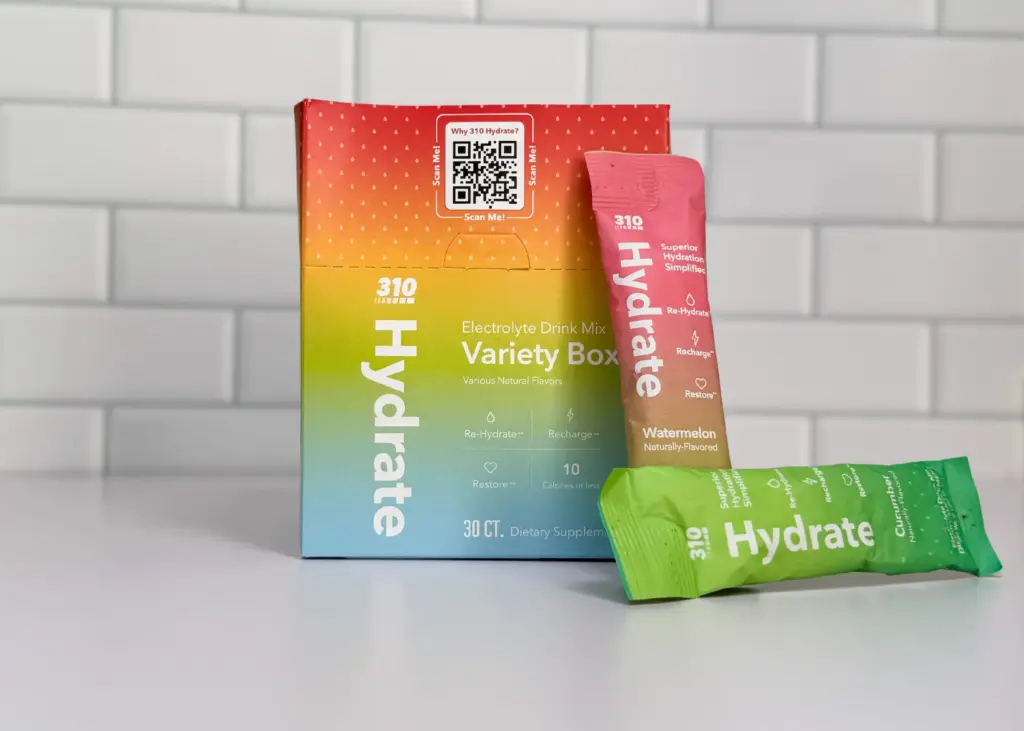
PROS
- No Artificial Sweeteners
- Caffeine-Free
- No Sugar
- Non-GMO
CONS
- Sometimes Sells Out Due To High Demand
- Available Online Only
#2. Nuun Daily
by Nuun
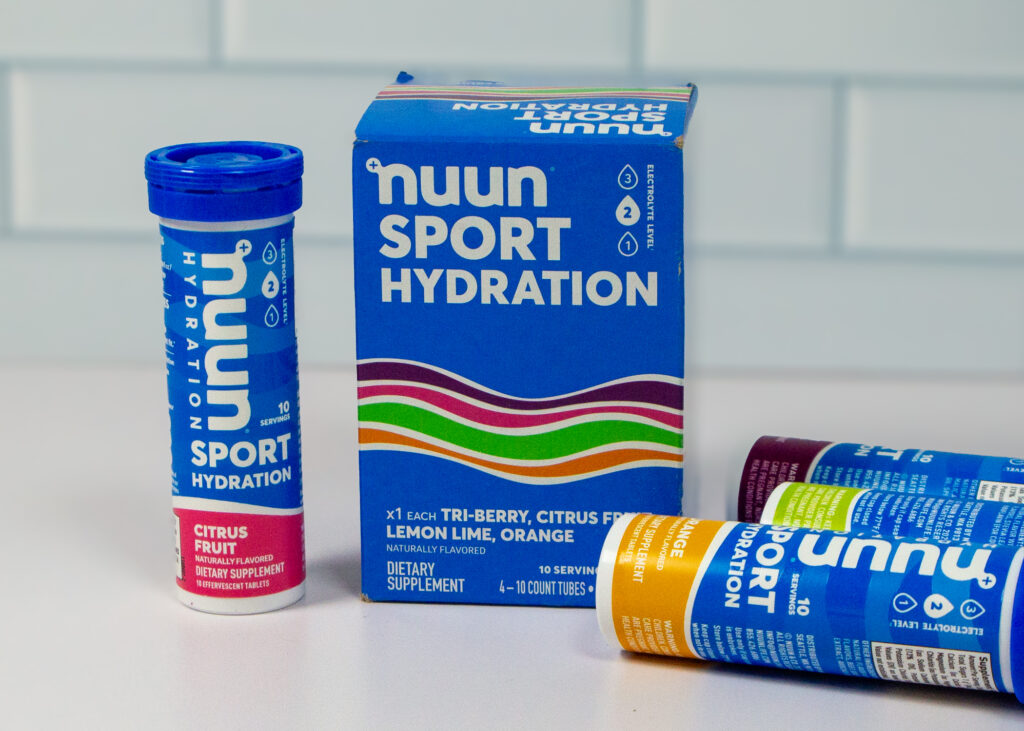
PROS
- Budget-Friendly
- Convenient And Portable
- Good For Everyday Hydration
CONS
- Lower In Sodium
- Limited Flavor Profile
- Slower Disolving Time
#3. Zero-Sugar Electrolytes
by LMNT
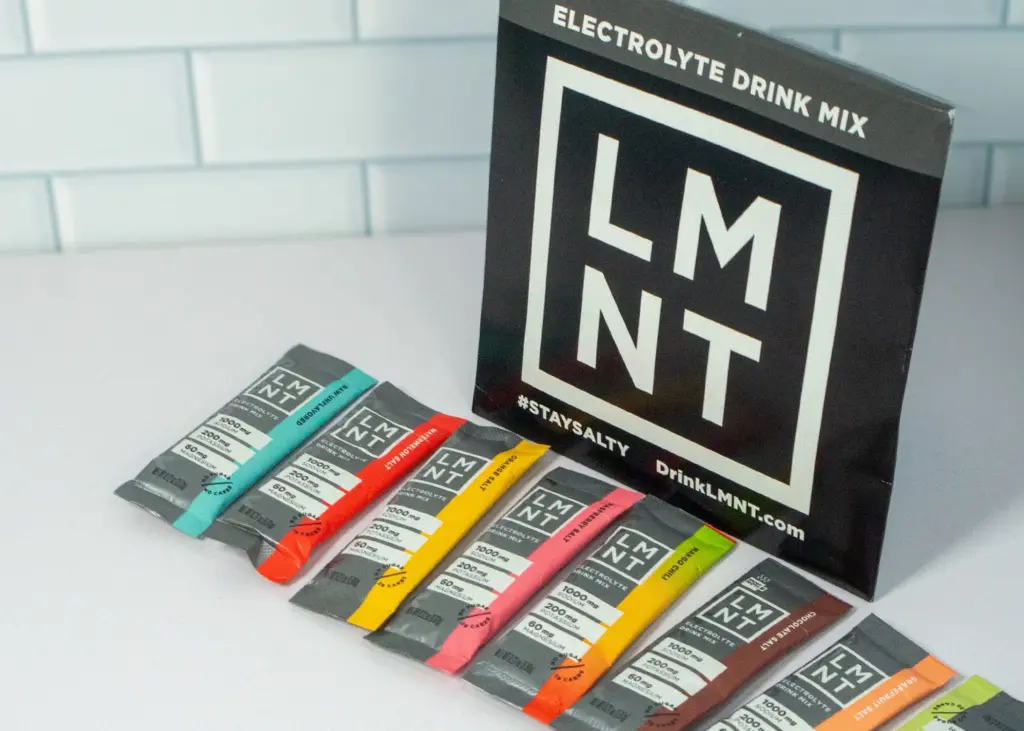
PROS
- Paleo-Keto Friendly
- Stevia-Sweetened
- Convenient Single-Serve Packets
CONS
- High Price
- High Sodium
- Less Variety In Flavors
PROS
- Natural Flavors
- Vitamin B Blend
- Convenient Single-Serve Packets
CONS
- Higher Priced
- Higher Sugar Content
- Limited Nutritional Value
REVIEWOLOGY SCORE
HIGHLIGHTS
- 2x Sodium Of Thirst Quencher Bottle
- 3x Potassium Of Thirst Quencher Bottle
- For Endurance Athletes
PROS
- Familiar Gatorade Taste
- Good For Long Workouts
- Provides Sustained Energy
CONS
- High In Sugar
- No Fruit Juice
- High In Carobohydrates
PROS
- Budget-Friendly
- Various Flavors
- Convenient Single-Serve Packets
CONS
- High In Calorie
- High In Sugar
- Not Ideal For Dietary Restrictions
PROS
- Easy to mix
- Variety Of Flavors
- Convenient Single-Serve Packets
CONS
- High In Sugar
- High In Sodium
- Made With Sucralose
References
- Grivet Outdoors, (n.d). The Importance of Hydration in Runners and Hikers. (para. 1-4).https://www.grivetoutdoors.com/blogs/activity/the-importance-of-hydration-for-runners-and-hikers
- Better Health (n.d.). Exercise – the low-down on hydration (para.13-18). https://www.betterhealth.vic.gov.au/health/healthyliving/Exercise-the-low-down-on-water-and-drinks
- Family Doctor Org and Deepak S. Patel, MD, FAAFP, FACSM. (June 2023). Hydration for Athletes. (para.2-6). https://familydoctor.org/athletes-the-importance-of-good-hydration
- Web MD and Poonam Sachdev, MD (August 17, 2023). Dehydration: Signs, Symptoms, and Effects. (para. 1-5). https://www.webmd.com/a-to-z-guides/dehydration-adults
- Rayven Nairn, MS, RDN, LDN (n.d.). Sports and Hydration for Athletes: Q&A with a Dietitian (para.13-20). https://www.hopkinsmedicine.org/health/wellness-and-prevention/nutrition-and-fitness/sports-and-hydration-for-athletes
RV Team
* Reviewology is in partnership or collaborates with top brands highlighted on this site, including those occupying the top ranking positions.
Additionally, we earn affiliate commissions from products showcased on this website when you make a purchase through the provided links on Amazon or the company website directly.
We appreciate your support using our links to purchase your favorite brands or newly discovered brands.
Latest updates
I Thought I’d Always Feel Tired, Fat, and Forgotten—Until This
310 Greens vs AG1
The Truth About 310 Greens: A No-Nonsense Review of This Popular Supplement
Popular
I Thought I’d Always Feel Tired, Fat, and Forgotten—Until This
310 Greens vs AG1
The Truth About 310 Greens: A No-Nonsense Review of This Popular Supplement
© 2024 Reviewology. All Rights Reserved.
